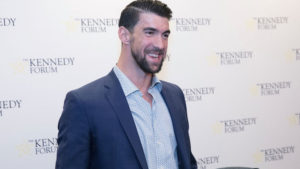Cleveland Cavaliers forward and NBA All-Star Kevin Love opened up about his panic attacks in the Players’ Tribune. Spurred on by DeMar DeRozan’s shared story, Love details how life’s secrets are masked and how he’s being truthful with himself now.
By Kevin Love
On November 5th, right after halftime against the Hawks, I had a panic attack.
It came out of nowhere. I’d never had one before. I didn’t even know if they were real. But it was real — as real as a broken hand or a sprained ankle. Since that day, almost everything about the way I think about my mental health has changed.
Mental health isn’t just an athlete thing. What you do for a living doesn’t have to define who you are. This is an everyone thing.
I’ve never been comfortable sharing much about myself. I turned 29 in September and for pretty much 29 years of my life I have been protective about anything and everything in my inner life. I was comfortable talking about basketball — but that came natural. It was much harder to share personal stuff, and looking back now I know I could have really benefited from having someone to talk to over the years. But I didn’t share — not to my family, not to my best friends, not in public. Today, I’ve realized I need to change that. I want to share some of my thoughts about my panic attack and what’s happened since. If you’re suffering silently like I was, then you know how it can feel like nobody really gets it. Partly, I want to do it for me, but mostly, I want to do it because people don’t talk about mental health enough. And men and boys are probably the farthest behind.
I know it from experience. Growing up, you figure out really quickly how a boy is supposed to act. You learn what it takes to “be a man.” It’s like a playbook: Be strong. Don’t talk about your feelings. Get through it on your own. So for 29 years of my life, I followed that playbook. And look, I’m probably not telling you anything new here. These values about men and toughness are so ordinary that they’re everywhere … and invisible at the same time, surrounding us like air or water. They’re a lot like depression or anxiety in that way.
So for 29 years, I thought about mental health as someone else’s problem. Sure, I knew on some level that some people benefited from asking for help or opening up. I just never thought it was for me. To me, it was form of weakness that could derail my success in sports or make me seem weird or different.
Read the rest of the story on The Players’ Tribune.








